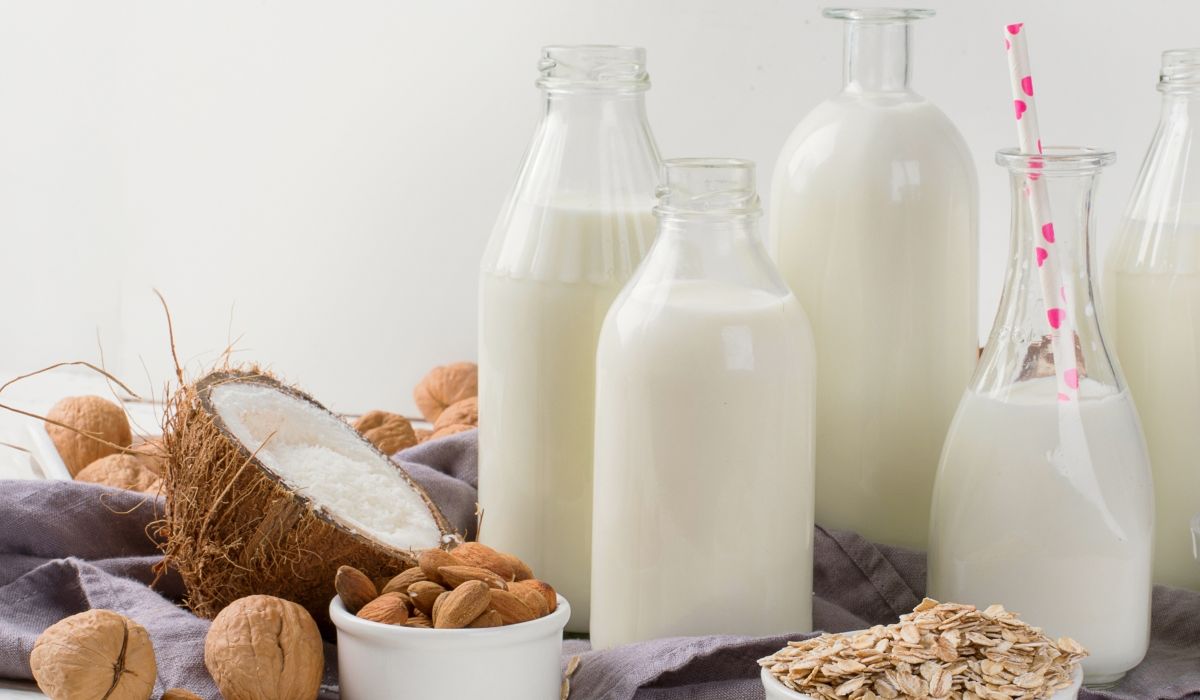Which Milk Is The Healthiest?
By Hafsa Hafeez
24 November 2022
A trip to the grocery store offers customers an overwhelming variety of milk options. And plant-based milk substitutes are becoming more and more popular, transcending the purview of the contemporary hipster.

For those who cannot consume dairy products or who have other preferences, such as ethical ones, these alternatives may be suitable. They typically have less caloric and saturated fats than dairy milk, but also less protein (apart from soy) and calcium (unless fortified). Some include a lot of added sugars.
There is no easy solution to the question of which milk is best. Although soy milk is a viable replacement from a nutritional standpoint, dairy milk usually wins out when it comes to vitamin quality. Furthermore, since they aren't derived from mammals, these substitutes aren't milked types.
However, there are significant changes in the nutritional value of the various options, so it's critical to consider these variations while choosing.
Advantages of cow milk
1. Essential proteins, additional calories from fats, as well as vitamins and minerals, can all be found in whole milk.
2. For those who are lactose intolerant, there are variants available without lactose.
3. There are several grocery stores and convenience stores that sell cow's milk, including selections that are grass-fed and pasteurized using low heat.
Drawbacks of cow milk
1. Fat and calorie content in whole milk are high.
2. Lactose, a sugar present in milk, is intolerant to a large number of people.
3. Concerns regarding the ethics of contemporary dairy farming practices exist
Advantages of almond milk
1. It has a few calories.
2. The majority of the time, it is fortified to be a healthy source of calcium, vitamin A, and vitamin D.
3. It is naturally lactose-free and vegan.
Drawbacks of almond milk
1. It doesn't provide a lot of protein.
2. Carrageenan, which some people may experience digestive problems with, may be present.
3. The amount of water used to grow almonds raises certain environmental issues.
Advantages of soy milk
1. It can be supplemented with calcium, vitamins A, B-12, and D, and is a good source of potassium.
2. Although it has fewer calories than whole milk and around the same number of calories as 1 percent or 2 percent milk, it has the same amount of protein as cow's milk.
3. Very little saturated fat is present.
Drawbacks of soy milk
1. For both adults and children, soy is a common allergy.
2. Some people are concerned that the majority of the soy produced in the United States originates from genetically modified plants
Advantages of rice milk
1. Of all the milk substitutes, it is the least allergic.
2. It is a good source of calcium, vitamin A, and vitamin D when fortified.
3. Compared to other milk substitutes, rice milk is naturally sweeter.
Drawbacks of rice milk
1. It contains a lot of carbohydrates, making it the least preferable option for diabetics.
2. It doesn't provide a lot of protein.
3. A rice product that is consumed in excess may have amounts of inorganic arsenic that are harmful to young children and newborns.
Advantages of coconut milk
1. Most people with nut allergies can drink coconut milk without any problems.
2. It is a good source of calcium, vitamin A, and vitamin D when fortified.
Drawbacks of coconut milk
1. It doesn't provide a lot of protein.
2. Carrageenan, which some people may experience digestive problems with, may be present.
Ultimately, you should select fortified and ideally unsweetened kinds when selecting a plant-based alternative to drinking. Additionally, since dairy milk has a calcium level of 115–120 mg per 100 ml (or 300 mg per cup), search for products that are as near to this as feasible.
Your decision should also take into account your nutritional needs and general diet. For kids, teenagers, senior citizens, and people on special diets, this is especially crucial. Last but not least, aspects like flavor, taste, texture, and mouthfeel should all be taken into account.
You Might Also Want To Read This
Popular Posts





